DM168 PIONEERS PROFILE
South African trailblazers prove that youth is not wasted on the young
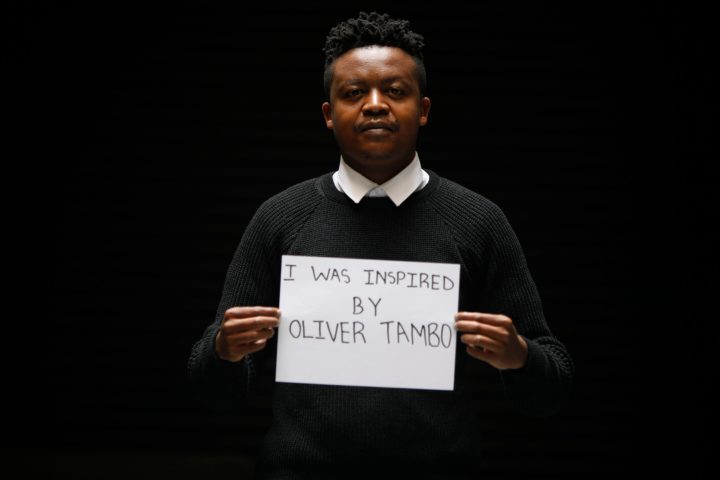
Despite the various challenges facing the youth of South Africa, these young people are proving that a lot can be done to help tackle the problems in our fractured society. From social justice activism, saving the environment and discovering ancient artefacts to shedding light on mental health, these young people are a force to be reckoned with.
First published in the Daily Maverick 168 weekly newspaper.
Motheo Brodie (27) – Legal researcher
Motheo Brodie is a literal example of a “freedom baby”, born in 1994, just as South Africa was birthing its new democracy where all citizens were recognised and equal. He comes from Randfontein in Gauteng.
Brodie was the former deputy Students’ Representative Council president at Wits University and one of the leaders of the 2015 #FeesMustFall movement that demanded free quality education for all.
“Being a part of the #FeesMustFall movement came at great personal sacrifice, not only in terms of our academics but also mental health,” recalls Brodie.
He did, however, manage to complete his LLB degree and joined education and health rights non-governmental organisation, SECTION27, in 2017 as a legal researcher in the Education Rights Programme. Brodie is passionate about the realisation of the right to education and thoughtful in his engagements on what the constitution mandates when it comes to realising this right.
Speaking glowingly of Brodie, SECTION27’s head of education Faranaaz Veriava said: “When I interviewed him for his position, I was struck by his quiet confidence and humility. I asked him who his favourite leader was and he replied that it was Comrade Oliver Tambo. Since then I often think of him as emulating that leadership style and confidence of this great leader.
“Motheo brings his activism to his job, showing empathy to all our clients. He understands social justice and often highlights the issues SECTION27 should be taking up. I am also impressed by his ever-evolving legal skills. Motheo is a true public interest lawyer.”
Brodie credits Tambo as the inspiration behind his activism and dedication to the pursuit of active citizenship and social justice in South Africa. “What I appreciate about Oliver Tambo is that his leadership espoused diplomacy, feminism, consultation; he was also a kind leader.”
Speaking of the change he would like to be part of effecting in the country, Brodie said he would like to work towards building a South Africa outside of just the political realm. He said the work he does at SECTION27 as part of civil society contributes to this vision in that it centres the Constitution as a bedrock on which the country is to realise the ideals of democracy promised 27 years ago.
Looking to the future, Brodie says he is working towards being an established public-interest and activist lawyer in service of South Africans. By Zukiswa Pikoli
Dr Keneiloe Molopyane (34) – Archaeologist and explorer
Archaeologist Dr Keneiloe Molopyane is “advancing our understanding of the world and all that’s in it”.
Those were the words of the National Geographic Society’s Alex Moen in May 2021, announcing Molopyane as one of the prestigious institution’s Emerging Explorer cohort. It’s the latest development in an extraordinary journey that began when Molopyane was a seven-year-old girl watching Saturday morning cartoons with her mother.
“We were watching The Adventures of Tintin: Cigars of the Pharaoh, and I was just captivated by the idea that one could go on adventures and discover ancient artefacts from lost civilisations,” Molopyane recalls.
“I didn’t grow up to become a journalist like Tintin, but hey – archaeology is just that much better!”
Molopyane obtained her PhD in biological anthropology at Wits in 2020: an achievement which is still all too rare for women of colour. As a black woman in the palaeo-sciences, she says she hopes that she has demonstrated that “there is a place for us in this field”, even if the journey can be lonely.
Indeed, one of Molopyane’s passions is the idea of creating diversity in the fields of archaeology and palaeoanthropology.
“There are many bright and talented individuals in the science that just need to be given the opportunity to shine. I was fortunate enough to be given various opportunities over the years, and have grabbed them with both hands,” she told DM168.
Molopyane is currently working as a postdoctoral research fellow at the Wits Centre for Exploration of the Deep Human Journey, and will focus on exploring the Gladysvale Cave system.
The caves are world-famous for having produced some spectacular fossil finds, including the remains of now-extinct animals, and a possible hair from the hominid species Homo naledi.
“I’m looking forward to see where this journey will lead me,” Molopyane says. “Dipping my toes into getting back into underwater archaeology has been at the back of my mind, but we’ll see how that goes. It’s been many years since I last donned my wetsuit, and [I] wonder if it still fits.”
Still, she tries not to let her excitement get ahead of her: “One adventure or expedition at a time!” By Rebecca Davis
Zoe Prinsloo (19) – Founder of Save a Fishie!
Although Zoe Prinsloo started cleaning Cape Town’s beaches with the Girl Guides at the age of 10, it was when she watched a viral video of a plastic straw being extracted from a turtle’s nose that she knew she wanted to be an environmental activist.
Since the age of 16, Prinsloo has been running her own beach clean-ups.
In 2018, she founded her own social enterprise called Save a Fishie!, which sells ecofriendly alternatives to household products – ranging from bamboo toothbrushes to firelighters made from recycled coffee.
“I don’t consider what I’m doing remarkable. I’m doing something everyone is capable of doing!” Prinsloo tells DM168.
“What is remarkable is that every day it seems our planet is on a downward slope. But I carry on, knowing that every piece of plastic I pick up is potentially saving a fishie.”
Prinsloo knows that some people consider beach clean-ups to be pointless interventions because the plastic builds up again as soon as the beach has been cleared. This doesn’t faze her.
“I believe that every piece of litter can be a potential killer,” she says.
The activist believes that one of the biggest obstacles she has had to overcome to date is the responses of others to her young age. “I was about 16 when I started physically running beach clean-ups myself, so it took a while for people to take me seriously and trust that I knew what I was doing, as well as just listening to me,” Prinsloo says.
Naturally, one of her heroes is the teenage Swedish climate activist, Greta Thunberg, who has proved that young people can be taken seriously on environmental issues. Prinsloo had the opportunity to hear Thunberg speak in person after she was selected to attend the United Nations Youth Climate Summit in New York in September 2019, an experience she describes as “priceless”.
She doesn’t judge those who are unaware of the scale of the problem she is tackling.
Prinsloo believes that education is the key and says that when she carries out beach clean-ups with schoolkids, many of them are “shocked” by what they find.
“I want to continue working with school children and be able to reach schools inland too,” she says.
“I am always looking to grow the business side of Save a Fishie! by selling alternatives to single-use plastics and one day becoming a one-stop ecoshop.” By Rebecca Davis
Dr Bhaso Ndzendze (25) – Head of Department of Politics and International Relations, University of Johannesburg
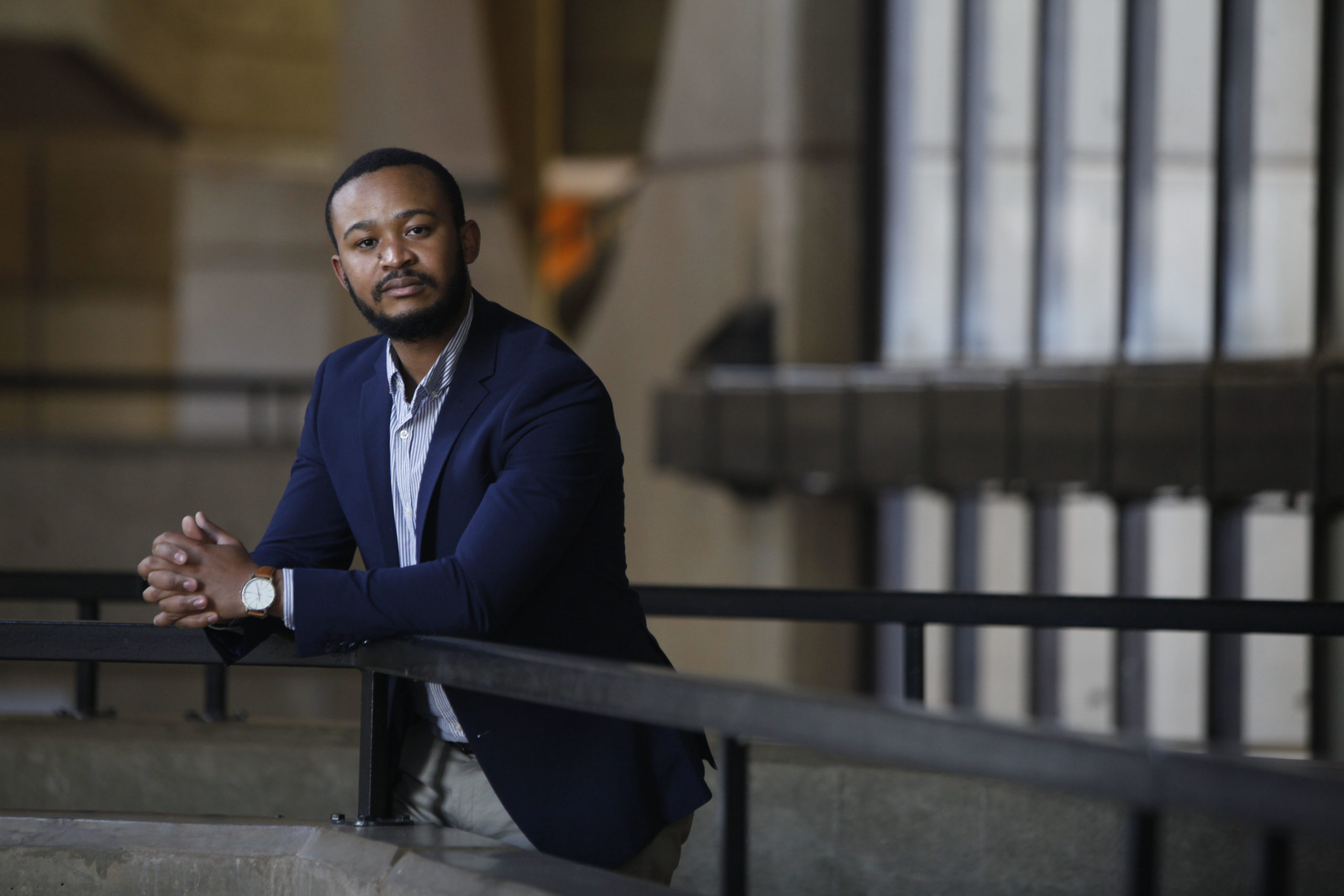
Dr Bhaso Ndzendze from the Department of Politics and International Relations at the University of Johannesburg. (Photo: Oupa Nkosi)
Dr Bhaso Ndzendze, an Eastern Cape-born academic, has recently been appointed as the head of the University of Johannesburg’s Politics and International Relations Department. This isn’t the first time that Ndzendze has been at the helm of a department.
Two years ago, when he was 23, Ndzendze was the research director of UJ’s Centre for Africa-China Studies, “which tells you a lot about his work ethic and his discipline”, said Johannes Sekgololo, a master’s student who is being co-supervised by Ndzendze.
“He is passionate and committed to his work in a way that not a lot of young people are,” Sekgololo told DM168.
Ndzendze said that he felt “a huge sense of responsibility but at the same time a great amount of gratitude towards [my] colleagues and the university management. I am also very confident and optimistic about the years ahead.”
Ndzendze, who completed his PhD in International Relations at Wits last year, said that he was drawn to academia for its “ability to examine phenomena beyond the surface; it is quite an extraordinary type of institution”.
Even though Ndzendze shied away from delving into the challenges he faced to get to where he is now, he said that he was well aware of the challenges students faced and that, in his new role, he aims to devote his time to understanding these issues and responding accordingly.
As a young person living in a country where 74.7% of the youth were unemployed in the fourth quarter of 2020, Ndzendze said that universities had “too much of a laissez-faire approach” to connecting prospective employers and graduates. To address this, Ndzendze said that he has “started forging links between my department and [the] industry so that our students get the necessary experience while they are in their studies. My aim is to produce more industry-ready graduates and I think the emergence of digitalisation of politics and the centrality of digital policy offers a great deal of opportunity for both employers and our graduates.”
As to what South Africa needed more of, Ndzendze said that the country needed a reading culture. “I think people underestimate reading and look at it only at face value. But reading is actually a way of downloading not just information but different ways of thinking as well. I think our young people would benefit from reading more and making it a lifelong habit,” said Ndzendze.
When it comes to what the country needs less of, Ndzendze said that we needed less cynicism. “We do best when we are united and optimistic about the future. That is the lesson of South African history and history in general,” said Ndzendze. By Karabo Mafolo
Shudufhadzo Musida (24) – Miss South Africa and founder of #MindfulMondays
Shudufhadzo Musida is out to prove that the Miss South Africa crown can provide a platform from which to effect real change. Since accepting the title, Musida has indicated that her priority will be to shine a spotlight on one of the issues closest to her heart: that of mental health.
Musida has been open in the past about her own struggles with mental health, particularly as a result of bullying as a child. She has said that she reached a point at which she started to dress like a boy in order to avoid attracting attention to herself.
Now, she is taking national attention and putting it to good use. Since February, Musida has been hosting Instagram discussions about mental health using the hashtag #MindfulMondays. The project has been undertaken in collaboration with the South African Depression and Anxiety Group.
The aim, Musida told DM168, is to shift mental health “from being a taboo subject to one that is openly discussed in public forums”. She acknowledges that it’s hard to quantify the impact of what she does.
“But, from the messages I’ve received, you see people realising not only is it okay not to be okay, but also getting educated about the resources available to help them,” Musida says.
Education about mental health, she believes, can help “create a society filled with compassion and kindness”.
Despite all the darkness in South Africa currently, Musida feels strongly about holding on to the principle that “we are a nation built on ubuntu”.
Musida, who also completed her honours degree in International Relations at Wits University in 2020, says that ideally she would like to take her mindful movement to a “global stage” in future. By Rebecca Davis
Siya Ntsumpa (33) – Founder of the Giving Them Wings Foundation
Food gardens do so much more than just supply food; they teach children to look after something, teach respect and provide them with the joy of knowing that they can look after their families.
Apart from the award-winning food gardens Siya Ntsumpa has helped to set up, he also runs recycling programmes at schools in the Eastern Cape. Ntsumpa is a great believer in the impact teaching children to grow vegetables has on their lives.
“Our driving motto is to make sure that the children understand that nothing must go to waste,” he said.
“Our food gardens became very important during the hard lockdown as the children knew there was something there to feed their families. They would often ask if they could go to the garden to get food.”
Ntsumpa started off by volunteering as a teacher, which he did for seven years.
“I am from a family of teachers. Sometimes they had up to 150 children in a class. I started volunteering to help out. I also realised that there were no extracurricular activities for the children, and also that they came to school hungry,” he said.
“That is what started me in the food gardens. I had R200 and no job. But I could do research on how to start a non-profit. For two years I really struggled.”
When he was no longer needed as a volunteer at the school, it started the ball rolling for him. “I wanted to do something that would benefit the children,” he said.
“When they help with food gardens they learn respect, and what it is to look after another living thing. We teach them what responsibility looks like.
“It is interesting to me that the teachers would report remarkable improvement in the children’s behaviour once they are involved in the food garden.
“Some of the children who helped me in the first food garden are now in their first year at university and we would often talk about their journey,” he said.
“This is a country where young people need programmes that will nurture them and help them mature. I know all of the children by name. Many of them grow up in their grannies’ houses. Young men need strong male role models,” he said. “I know because I was raised by a single mom myself.”
He believes “young people should stop complaining and find a solution – but also consider what it is like to walk in someone else’s shoes”.
When he is not gardening Ntsumpa loves to have some coffee with friends. “I recycled a lot of things to pay for my special travel coffee cup. Nothing should go to waste.”
Liziwe Kate, the deputy principal of Elufefeni Primary School in Motherwell, said Ntsumpa’s food gardens went a long way towards boosting their nutrition programme.
“He is a remarkable young man. He has a big influence on our school. Most of our parents are unemployed. Most of our learners come from an informal settlement. Their parents are not working … With Siya’s garden we are benefiting as a school because we have a lot of fresh vegetables to give our learners,” she said.
She had great admiration for the way he was able to use each child’s unique abilities. By Estelle Ellis
Zolelwa Sifumba (30) – TB treatment activist
It took a serious battle with multidrug-resistant tuberculosis (MDR-TB) for Zolelwa Sifumba to find her voice, but now she wants to keep up the fight for the mental health needs of doctors and healthcare personnel to be met in the workplace.
Sifumba always dreamt of becoming a doctor. “I started medical school in 2009 at the University of Cape Town but I have always struggled with mental health issues. I was suffering from depression and, in my fourth year, when we started doing clinical work, it got worse. I started seeing a psychologist,” she said.
“In the same year I discovered a lump in my neck and I was diagnosed [with] MDR-TB. I remember when I got the test results I still said: ‘Sorry, what?’”
“If anything I learnt that day how you should deliver bad news.”
She explained that at the time the survival rate for MDR-TB was about 40%. “I assumed I was going to die.”
Then one day she heard that an organisation, TB Proof, was speaking on campus. “I ran down there to listen and they were amazing. I joined their cause to get support for my own treatment journey. They later gave me an opportunity to speak. I was so shy,” she said.
But she summoned her courage and started talking about the disease.
Sifumba said while she was undergoing the gruelling treatment for MDR-TB, she kept herself going by attending conferences and doing advocacy work nationally and internationally for TB Proof.
“Suddenly the health system made more sense to me coming from the other side,” she said.
After she completed her degree, she was sent to a rural hospital in KwaZulu-Natal to do her internship.
“It was rough,” she said. “There was a lot of bullying. I was in an accident once after working a 36-hour shift. When Covid-19 hit us I was being bullied for speaking up and asking for personal protective equipment (PPE).”
She also got Covid-19 but has recovered. “Afterwards I had a nervous breakdown. My anxiety went through the roof. You looked at the PPE they gave us and you know they sent us trash. We needed more support.
“I had a tough journey to where I am today. It should not have to be this hard. Last year was just hellish,” she said.
She has left her job as a doctor for now to recover.
“I wanted to scream fire at the frontline. I want to have a global impact,” she says of her plans to speak out against bullying at hospitals.
“Doctors are forced to work 36-hour shifts. But who can make a good decision after 36 hours?” she asked.
“On social media people are so fond of portraying health workers as superheroes but nobody checks on a superhero. But they are just human. And most of us have seen way too much death,” she said.
Dalene von Delft from TB Proof said Sifumba was an amazing TB advocate. “She started her own blog, TB and Me, even before we met. I was very impressed from the start about the way she could share her story. She was very engaging,” Von Delft said.
Sifumba has taken part in a documentary on TB and has represented TB Proof internationally. “I can see she has a real need to help others.” By Estelle Ellis DM168
This story first appeared in our weekly Daily Maverick 168 newspaper which is available for free to Pick n Pay Smart Shoppers at these Pick n Pay stores.


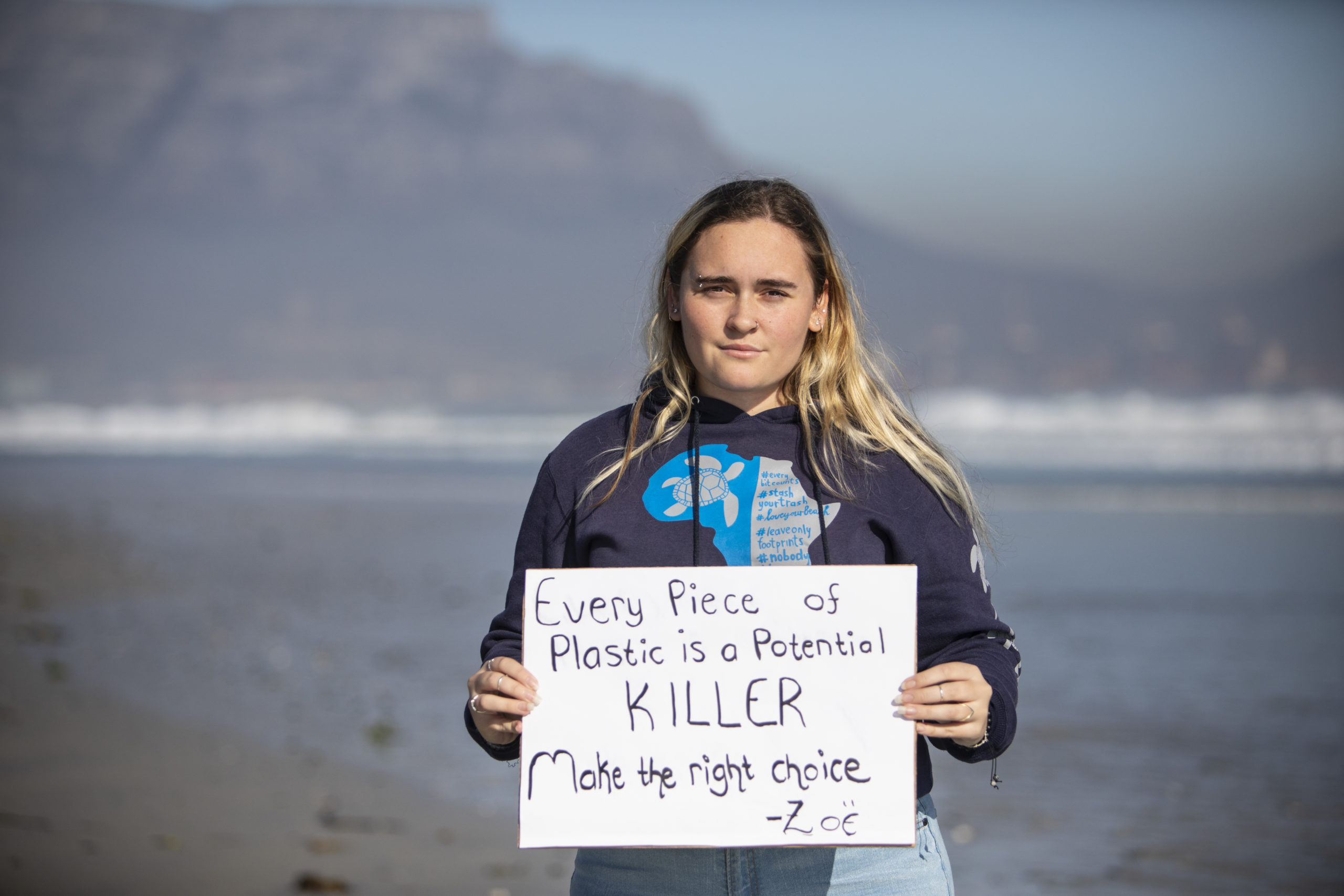

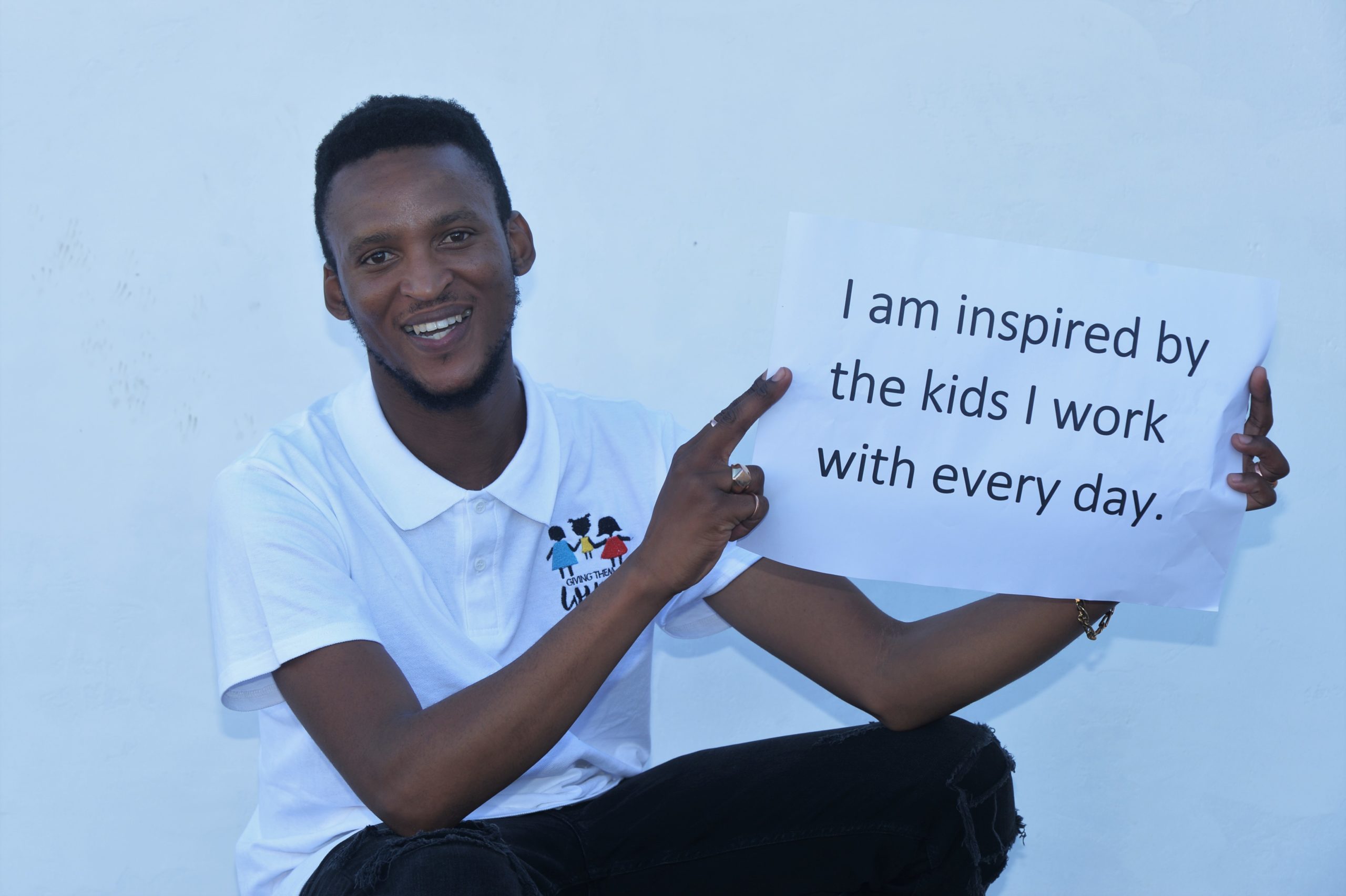
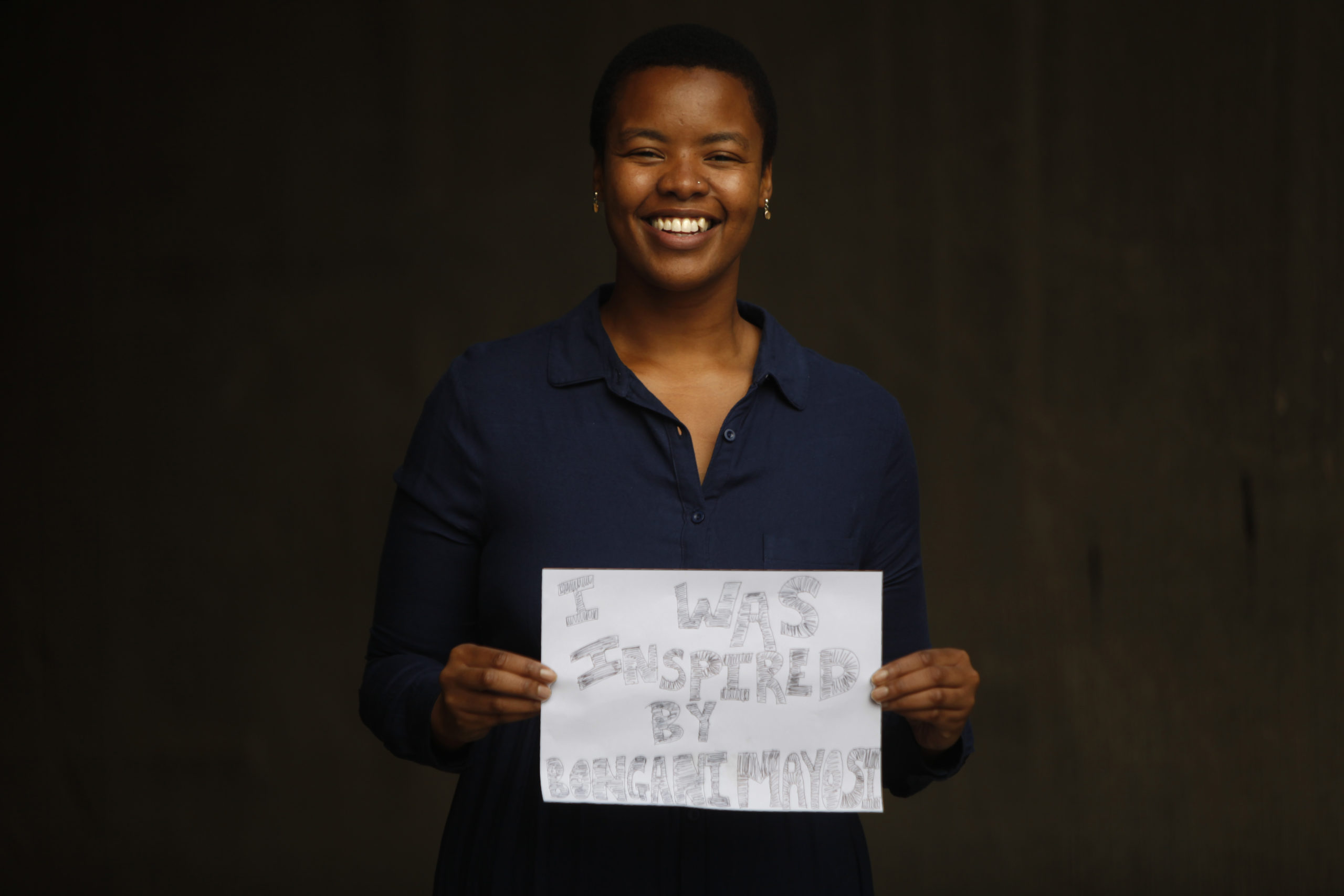
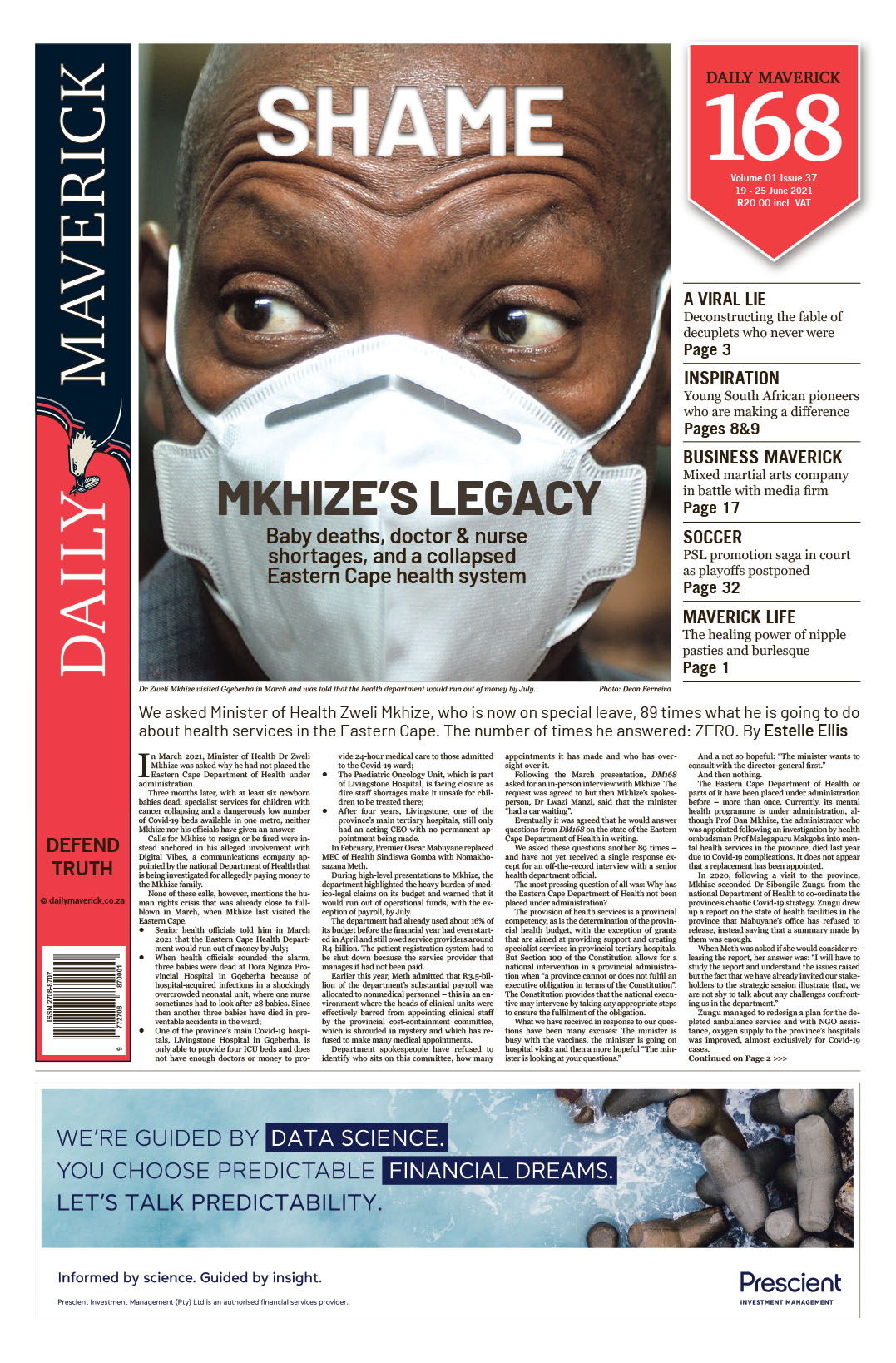
















 Become an Insider
Become an Insider
I am truly inspired by the profiles on the fabulous youth that we have in this country.
Please continue to do this on a weekly basis.